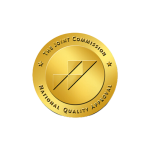What You'll Learn:
- Understand the critical alcohol seizure warning signs that signal a dangerous situation.
- Learn about the risks of alcohol-related seizures and how they can lead to severe outcomes such as alcohol seizure death.
- Explore how withdrawal from alcohol can trigger seizures and why seeking medical help is crucial.
When people think about the dangers of alcohol abuse, seizures might not be the first thing that comes to mind. However, the connection between alcohol and seizures is a serious concern, particularly for those who struggle with heavy drinking or alcohol withdrawal.
Can Alcohol Cause Seizures?
The answer is yes, and understanding the warning signs is crucial in preventing life-threatening situations. Seizures related to alcohol use are often the result of sudden withdrawal after prolonged drinking or chronic abuse, and they can be unpredictable and dangerous. In some cases, they may even result in alcohol seizure death.
Alcohol Seizure Warning Signs
If you or someone you know is dealing with alcohol abuse or withdrawal, it’s important to be aware of the following alcohol seizure warning signs. Recognizing these symptoms can be lifesaving, as it allows for timely intervention and medical care.
1. Sudden Onset of Confusion or Disorientation
One of the early alcohol seizure warning signs is confusion or sudden disorientation. This can occur when the brain struggles to adjust after alcohol use stops. If someone is acting confused or having difficulty understanding their surroundings, it could indicate that a seizure may be imminent, especially in the context of alcohol withdrawal.
2. Shaking or Tremors (Delirium Tremens)
Tremors, often referred to as "the shakes," are common among those experiencing alcohol withdrawal. However, severe shaking or tremors, known as delirium tremens (DTs), can be a precursor to seizures. These symptoms should not be ignored, as they are an indicator that the body is under significant stress and a seizure may follow.
3. Loss of Consciousness
A sudden loss of consciousness is one of the most serious alcohol seizure warning signs. If a person collapses or becomes unresponsive after heavy drinking or during withdrawal, this could be the beginning of a seizure. Immediate medical attention is required to prevent further complications.
4. Uncontrollable Muscle Spasms
Uncontrollable muscle spasms, often involving jerking or twitching movements, are a hallmark of seizures. These spasms can affect the entire body or may be localized to specific muscle groups. If someone begins experiencing muscle spasms after stopping alcohol use, it’s a clear sign that a seizure may be occurring or about to happen.
5. Hallucinations
Hallucinations—seeing or hearing things that aren’t there—are another sign of alcohol withdrawal that can precede seizures. Hallucinations often indicate that the brain is struggling to cope with the sudden absence of alcohol. If you are left untreated, this condition can escalate into a full-blown seizure.
6. Severe Anxiety or Panic Attacks
Many people experience anxiety during alcohol withdrawal, but when this anxiety becomes extreme or is accompanied by panic attacks, it could be an indicator of an impending seizure. The brain’s overactivity during withdrawal can trigger both panic and seizures, making it important to monitor severe anxiety closely.
7. Profuse Sweating
Sweating is a common symptom of alcohol withdrawal, but excessive sweating, especially in the absence of physical activity or high temperatures, can be a warning sign of an impending seizure. Profuse sweating combined with other symptoms like tremors or confusion should not be ignored.
8. Rapid Heart Rate (Tachycardia)
A rapid heart rate, also known as tachycardia, is another warning sign that the body is under significant stress. This symptom can occur during alcohol withdrawal and may signal that the person is at risk for a seizure. Tachycardia can quickly escalate into more severe symptoms, making it essential to seek medical care immediately.
9. Nausea and Vomiting
While nausea and vomiting are common withdrawal symptoms, they can also indicate that the body is reacting violently to the absence of alcohol. Persistent vomiting and nausea, especially when paired with other neurological symptoms, could be a sign that a seizure is imminent.
10. Severe Headaches
Severe headaches during alcohol withdrawal can indicate increased pressure in the brain, which can lead to seizures. If someone is experiencing a throbbing or pounding headache alongside other withdrawal symptoms, it’s important to monitor them closely for signs of seizure activity.
11. Loss of Muscle Control
In some cases, individuals may lose control of their muscles before a seizure occurs. This could manifest as clumsiness, difficulty walking, or dropping objects frequently. Loss of motor control is a significant alcohol seizure warning sign and should not be taken lightly.
12. Visual Disturbances
Blurred vision or seeing flashes of light can be warning signs of an impending seizure. These visual disturbances occur because the brain is struggling to regulate itself after the sudden cessation of alcohol. Visual changes should be reported to a medical professional, especially if they occur alongside other symptoms.
13. Extreme Fatigue or Drowsiness
While it’s normal to feel tired during alcohol withdrawal, extreme fatigue or sudden drowsiness can be a precursor to a seizure. If someone becomes excessively sleepy or lethargic, especially if they were previously anxious or restless, a seizure could be on the horizon. Seeking medical intervention at this point is critical to prevent further escalation.
Alcohol Seizure Death: The Serious Risk
In severe cases, alcohol seizure death can occur. Without proper medical treatment, seizures can cause significant brain damage, respiratory failure, or cardiac arrest. This is why it’s crucial to seek medical attention as soon as any of the warning signs become apparent.
Alcohol Seizure Medication: A Lifesaving Option
Fortunately, there are alcohol seizure medications that can help manage symptoms and prevent seizures from occurring. Benzodiazepines are commonly prescribed to reduce the risk of seizures during alcohol withdrawal. These medications work by calming the nervous system and preventing the overactivity that leads to seizures. However, they must be administered by a healthcare professional, and individuals should not attempt to self-medicate.
If you or a loved one is struggling with alcohol addiction and are at risk of experiencing seizures, don’t wait to seek help. Understanding the alcohol seizure warning signs is essential for preventing severe outcomes like alcohol seizure death. At American Recovery, we provide comprehensive care for individuals in recovery, including the use of alcohol seizure medication to keep you safe during the withdrawal process. Contact us today at 866-484-2502 to learn more about our treatment options and take the first step toward a healthy, sober life.


